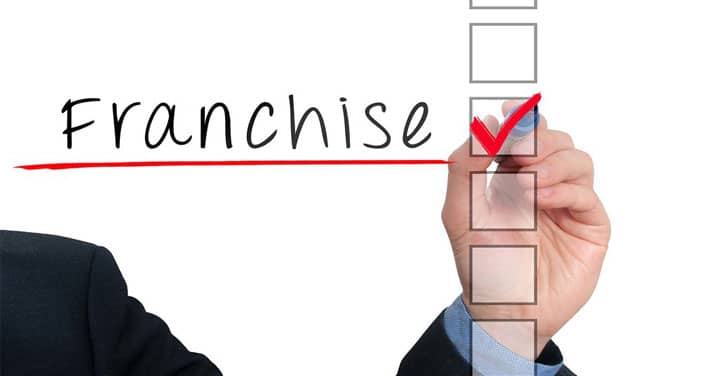Buying a franchise is a great way to fulfill your dream of owning a business. As opposed to building a company from the ground up, a franchise is already part of an established network with a pre-existing infrastructure, a customer base and a slew of other vital perks.
For instance, where customer retention is a challenge for many service industries, MOM franchises are consistently above 90% because our customer service infrastructure — which gives our franchisees an edge over their competitors they wouldn’t have if they went it alone. Indeed, a 5% increase in customer retention can increase a company’s profitability by 75%.
Buying into a proven business model, however, is a considerable investment. So its one that you’re not going to want to make until you’re familiar with the ins and outs of being a franchisee the commitments you have to your franchisor, the rules and regulations you must abide by, and the vital facts you should be aware of before signing on the dotted line.
Remember, successful franchisees can make great profits, but it can also happen that they close their doors and lose their invested capital. That being said, here’s ten tips that will help you start your franchise with the right foot forward.
Consumer Demand
The first step in deciding whether to invest in a certain franchise is gaging whether there’s actually a demand for that brand in the market. For instance, does your city, town, or neighborhood need a specific kind of franchise?
It also goes without saying that you should make note of your local competition, whether it’s a competing brand or competition from other franchises. For instance, you might ask yourself whether your neighborhood reallyneeds a 3rd sandwich franchise?
What’s your initial investment?
It sounds obvious, but this is a rule that’s often ignored. Once you’ve determined that there’s a demand for the franchise you’re considering, the next thing you consider is how much you need to spend to get up and running not just how much you stand to make per year.
For instance, are you prepared to go into debt? And if so, are you prepared to go into debt for as long as it’ll take you pay it back at the projected earnings of the franchise you’re looking at?
What’s the selection criteria?
Now that you know your demand, as well as how much you’re expected to front, get familiar with the selection process for potential franchisees. Find out if there’s an interview process, special training, or quality control measures, such as regular check ups or benchmarks. Some business people look to open up a franchise with very few regulations, while some appreciate the added comfort of a rigid set of checks and balances.
The fees to which you must commit
Most franchises have a set of rules about how much of your profit goes back to the company. You may also be required to rent specific property or equipment from the company and a prefixed cost.
The restrictions placed on you by the franchisor
Along with certain fees you will be committing to, there might also be regulations governing who can source your supplies from. For instance, you may have to buy from specific suppliers who charge more than you would otherwise be willing to pay. So when you’re running your cost projections, be sure you take in such restriction and strategize accordingly.
How is the franchisor profiting from their franchises?
Different companies work with different models of profit. Some collect a cyclical payment from their franchisees. Some just ask for the initial payment, and some offer services or buildings to rent for a price. Different models work in different circumstances, so it’s important to know not only the price, but the method and meaning behind your fees.
Do you have any sort of protection from threat?
You might’ve done your marketresearch (e.g. there is no serious competition in your area), but is there anything stopping the franchisor from licensing another franchise only a few blocks down the road?
For instance, some franchises can coexist with two or three locations in the same small town, but the franchisor is the one that’s going to be profiting the most. In other words, your franchise might be turning a profit, but it’s not going to be experiencing much growth if you’ve got an identical competitor just down the street.
How many franchises fail and how many thrive?
In business, you can do everything (or nearly everything) and still get driven out of business. Look into out how many franchises close their doors before the year, two year, five year mark. Why are they failing? Is it because of lack of business or just poor management?
Conversely, it’s important to know how many franchises thrive, how quick they are to rise to the top, and what their road to success looked like.
What are the potential growth opportunities?
At this point, you’ve done your research. You know what you are and aren’t allowed to do, and the sort of protection policies you’re afforded. With tenacity, strong business acumen and a dash of luck, your franchise will end up successful and you’ll eventually start considering opening other franchises and building your empire.
That is, of course, if the franchisor offers its franchisees first pick on new franchises opening up in your area. Find out what opportunities there are to expand, and make sure you work it into your medium to longterm business plan.
How can you sell your franchise?
Whether it’s because you want out of the business, or because the revenue and growth you hoped for isn’t as anticipated, there might come a day when you might consider selling your franchise. It’s important to know how and to whom you can sell the franchise. There may be certain fees tied to ridding yourself of the franchise, and hoops to jump through to pull out of the venture.
The Road to Rome
By following these rules and sticking to your guns, mixed in with favorable external conditions, and a smalldash of luck, you’ll be headed in the right direction on the road to franchise success. But knowing what to expect along the way will make all the difference in how quickly your business arrives where you want to take it.
Remember, analyze your market and understand all of your costs (where they’re going and who’s collecting). Owning a franchise may be your version of “being your own boss”, but it also means being your own employee, so find out exactly how you’re expected to run your franchise, as well as profit from the rewards that come as a result.




